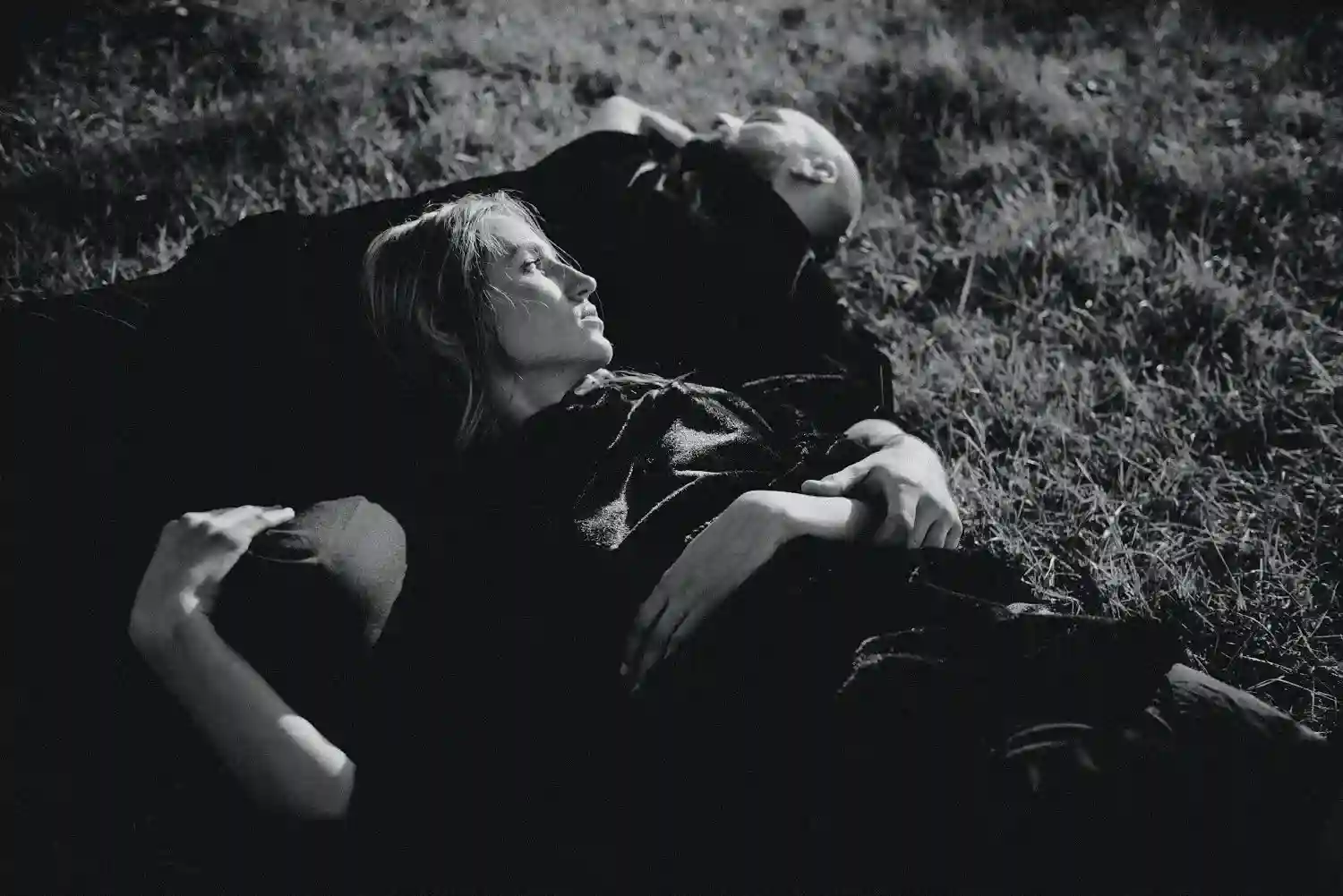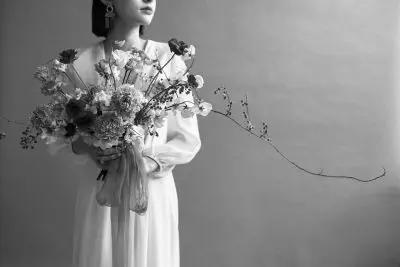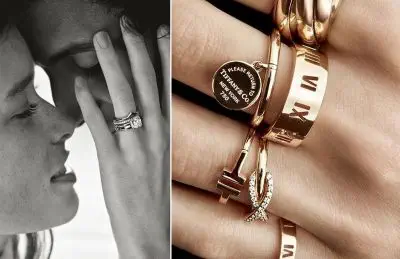The basis for unconditional love for yourself, the world and your partner is honesty, sincerity, living here and now, growing and developing in all directions.
The other side of the unconditional love – the user’s love
To make it easier to understand what unconditional love is, I want to start by looking at the other side of it, namely, the user's love.
I have to say that most people experience relationships through the love of the user.
The user’s love is based on satisfying inner needs and filling in gaps and voids with the help of another person. We expect the other to give us what we lack, to bring us satisfaction, joy and happiness. We consciously, or, most often, unconsciously, appoint the other person as the one who determines our quality of life, happiness, joy, and moods. Later, he is also the one to blame for all the failures – all because of him.
.webp)
The user's love is always based on expediency. It can be either conscious or unconscious. Perhaps these benefits include status, family idealization, externally favourable conditions, financial convenience, receiving certain emotions, access to the body, and more. We are together because it is convenient. In this case, none of the partners sets themselves the task of investing in the relationship. Rather, there is a game with feelings. There are no deep feelings, everything is superficial. There is a gamble, a fleeting passion, but with time, this supply of dopamine decreases and partners begin to demand more from each other.
In my consulting practice, I have often come across the fact that women tend to be puzzled – how is it that the other person begins to feel that I am demanding something from him over time, even though I do not feel it myself? Arises the competition for power between partners – who is stronger, smarter, more intelligent, whose work is more important, whose free time is more important.
.webp)
What is going on?
The end of the effect of dopamine and other hormones of falling in love, which initially tied the two partners together, created the illusion of common interests, needs, recognition and understanding of each other. This has unfortunately been a false understanding of each other with a mercantile thought – me for you, you for me.
For example, a woman, entering into a relationship, begins to get more and more hung up, give up her desires, and begins to put the needs of a man higher because somewhere she has heard, seen and figured out that it needs to be done and that it is the key to a long-term relationship. Having lived in love with doping for a while, she turns a blind eye to the fact that she is going against her values. But this going against my values is an idea – if I do it, the other will do it too.
If I give up on myself, others must also give up on themselves and do everything to satisfy me, make me happy, and fulfil my desires. Like Gin from a fairy tale. When this does not happen and in reality, it turns out that the other is a common person, not a fairy-tale hero, there is an internal and external collision. Dispute after dispute, resentment after resentment. Why? Because I give everything to the other but he doesn't answer me with the same thing.
.webp)
Sometimes, people understand and feel they do not love each other but live together. Children are often the excuse for this union. Children will lose what only both parents together can provide and the like. The couple sticks to illusions and idealizations and is ready to find any solutions to somehow succeed in living together, and the real reason is often toxic attachment, as well as favourable conditions that they do not want to lose – residence, material benefits, time and externally created family image.
In such cases, couples seek remedies that can help to at least improve communication at home, but there are no such recipes if people do not have the readiness and desire to love each other, take care of each other, and give their unconditional support to each other.
.webp)
Expressing your love
What is that about? What does this support look like?
A man is late for work, and a woman sends him a dinner delivery, knowing he will be hungry. A man has a workout, and a woman does not send him messages asking when he will be at home and a resentful note that she must spend the evening alone again. A woman's love is manifested through a man's unfettered freedom, trust, and faith.
A man shows love through actions – his love is manifested through the desire to protect a loved one, take care of her, and try to make her life easier in different ways. A man's love is manifested through the deeds he is willing to perform for a woman and family. Because words are much easier to say than taking particular actions or responsibility for solving women's problems. If this does not happen, the man does not do it, if he escapes responsibility – this shows that there is a kind of convenience in the relationship, but love is not there.
.webp)
Capable of giving a hand, opening a lady's door, or paying for her at a restaurant – such actions are nothing more than courtesy.
If there is suffering, torture, pain, resentment, and struggle in a relationship, then it is difficult to talk about love here. Relationships in which we choose to suffer and hold on to them for all sorts of things are always beneficial. No self-loving person will allow themselves to be in an environment where they feel bad, even if it means giving up and losing the benefits of such a relationship. Human values and self-esteem will stand higher. Unfortunately, a large percentage of women become addicted to relationships because they have a fear of material losses.
Conditions in the relationship
When a woman says that her child needs a father, it means that she starts a relationship already with a chump condition that the man will have to fulfil – he will have to be in the role of father, raise her son, be at home at a certain time, spend time on holidays only with his family, and still every Wednesday play football with her son. A pile of demands, also based on the idealization of who her child's father should be. Unfortunately, this role was not fulfilled properly by his real father, and so she is looking for the one who will be the perfect role model for her son.
.webp)
In another case, a woman is looking for the perfect son-in-law for her parents – one that parents will be proud of, who they will like and be a model man. Another is looking for someone to take care of, clothe, feed, go out with, take to doctors and the like. Conversely, a man is looking for someone who should be an excellent hostess, cook three times a day, clean the house, raise children, take care of the well-being of the family and preferably work in a good position and provide half of the costs of living.
These are all conditions, requirements, and expectations that are not based on love but on gaining and filling your inner voids by using the other person.
And that doesn't mean a man or a woman won't do these things. But one must understand the difference between solicitation, idealizations and each partner's responsibility as a woman and a man, each's values, standards, and willingness to invest in relationships by assuming roles and responsibilities. This is done by mutual agreement on cooperation, respect for the personal space of both parties, as well as the creation of a common partnership space.
.webp)
Unconditional love
True feelings of love are selfless and are focused on giving, not receiving.
In unconditional love, there is a synergy between partners. Two personalities who are both good together and good for each other as well. Partners do not prevent each other from being and living in harmony with themselves. There are both individual desires and goals that are realized, as well as shared as partners, team, and family.
Unconditional love is a complex but attainable form of love. It depends on how mature a person is and what the current consciousness is. Maturity and awareness determine how ready we are for pure love.
With unconditional love, you have to be careful because there is a fine line between giving to another unconditionally and expectantly, but nothing comes back, and when the balance between giving and receiving is healthy. In the first case, very often, a person is unaware that he is in the role of a victim. To create a healthy balance, it is important to be aware of yourself, your boundaries, values, desires and needs. Introduce them to each other to ensure you are on the same page.
.webp)
Unconditional love does not mean letting the other do anything to me that comes to their mind. Love is about respect, responsibility, and caring for each other and oneself.
People very often use the word love to mean passion, toxic attraction, hormones of falling in love, and sexual attraction. But love itself is all-encompassing, deeper, and broader. Only then can we truly love each other when we have personal goals, values, and personal standards in order and have an understanding of our own life roles and values in these roles.
If two people meet who love each other unconditionally, they are ready to give to each other, take care of each other, and take responsibility without expecting anything in return. If they both have such a feeling, the balance between giving and receiving is equal.
Both give, and both receive. But be careful when only one gives to the other, and the other person uses it. Whether both engage in a relationship from the beginning with internal expectations that the other will give, do and take responsibility, it is demanded, and, as a result, there is growing dissatisfaction because expectations do not come true, and there is no reckoning with each other.
Loving each other means understanding, knowing the partner and knowing what I cannot expect from him and not expecting it. It means sometimes laughing sweetly at yourself and each other and accepting flaws. It means highlighting the best qualities in the other, lifting, rising, and wanting to be better.
.webp)
Author: Zane Ozoliņa / relationship mentor








.webp)
.webp)
.webp)
.webp)
.webp)
.webp)
.webp)
.webp)
.webp)





